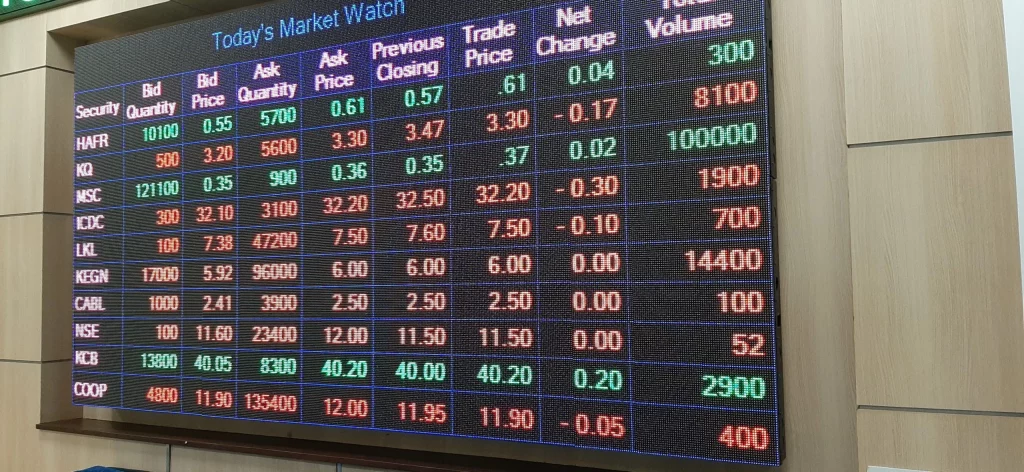Less than half of small investors’ portfolios on the Nairobi Securities Exchange (NSE) indicate net wealth due to the use of 54% of their shares to finance bank loans.
As of June 2022, according to the most recent quarterly Capital Markets Authority (CMA) report, 6.38 billion shares had been pledged by people. They held 11.8 billion stocks in total over that time.
From a high of 59.4 percent a year ago, when individual investors used 6.5 billion shares out of the 10.9 billion they owned to secure loans, the use of equities as collateral has decreased.
Although the value of the bank loans and shares was not made public, it is anticipated to be in the hundreds of billions of shillings. Retail investors own a large portion of the stock market, which now has a total market capitalization of Sh2.1 trillion.
The impact of retail investors buying more stock and the release of some units that were previously frozen owing to debt is reflected in the lower percentage of shares needed to support loans throughout the review period.
Only 40,717 individual investors with significant holdings out of the 1.7 million retail owners throughout the review period, according to the CMA study, pledged the shares. A year ago, there were more people 41,687who used their shares as collateral.
With the flexibility of borrowing against shares, people can access money without having to sell their stocks at a loss or before receiving the maximum return from capital gains and dividends.

People who borrow against their portfolios are probably business owners and professionals with yearly salaries that top millions of shillings.
Most people who take out bank loans typically use other assets, such as property or their homes, or they rely on their paystubs to cover the obligation.
To reduce the risk of loss in the event that the borrower defaults and the stock price drops, banks often provide loans at a large discount to the current share price.
The shares that have been pledged are normally frozen, and investors don’t fully reclaim control of the stocks until their bank loan has been repaid. If a borrower defaults and the value of the portfolio likewise drastically declines, banks run the risk of incurring losses.
Subscribe to our YouTube Channel at Switch TV
Shares that were pledged are not made public by the CMA, although it is likely that they are largely liquid stocks of well-known, successful businesses like Safaricom, Equity, East African Breweries Plc, and KCB.
The average market capitalization for the reviewed quarter was Sh1.9 trillion, down from Sh2.3 trillion for the three months ended in March.
The decrease in paper wealth has been ascribed to a significant selloff by foreign investors who were alarmed by a number of causes, such as the weakening of the shilling and the uncertainty in the global economy brought on by the Russia-Ukraine war.
















